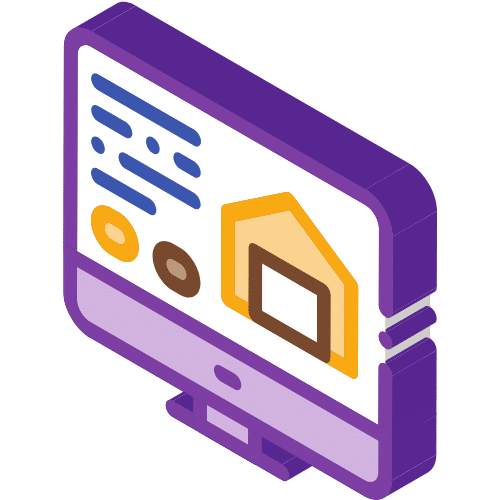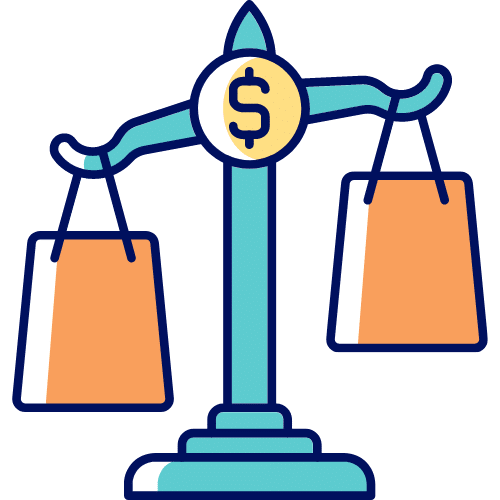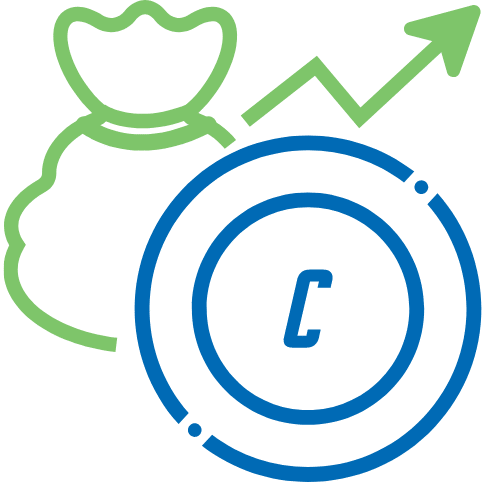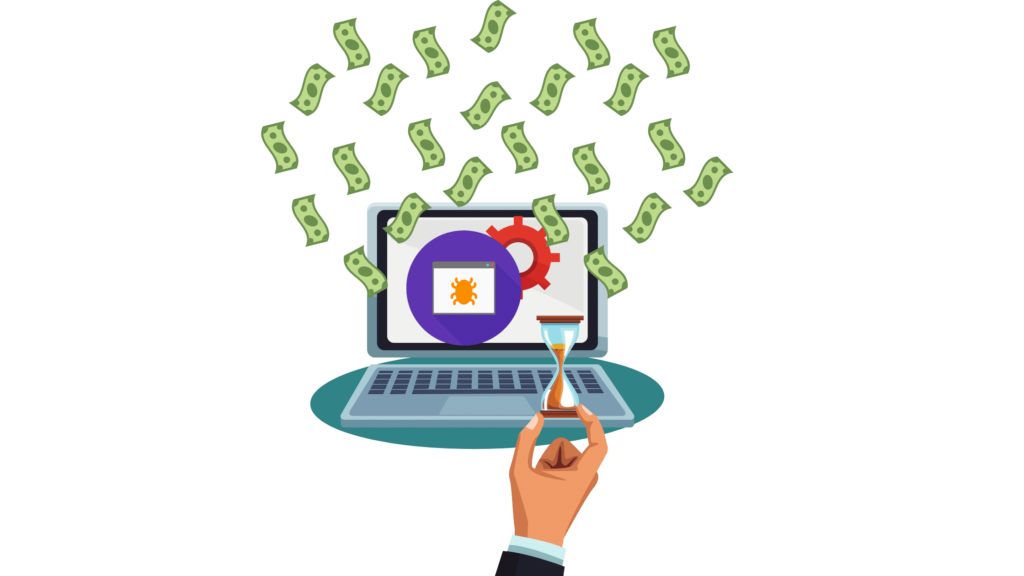Can you make money web scraping these days?
Yeah. Absolutely.
But the real question is…
How?
Buckle up. It’s about to get informative up in here.
What’s web scraping?
Web scraping refers to using software or scripts to extract data from websites. This data could include text, images, videos, audio files, etc. You can use it in many ways, including:
- Creating an email newsletter with content pulled from other sites
- Extracting product reviews from Amazon
- Collecting stock prices from Yahoo Finance
- Finding out about new products at retailers like Target or Walmart
How do web scrapers work?
The process is simple.
First, you need a program to access the site you want to scrape. Then, you download the page into your computer and feed it through a script that extracts the data you are looking for. Finally, you save the data into a file format that you can use later.
How to make money web scraping.
Once you collect the data, you need to turn it into something useful like a spreadsheet. But that won’t make much sense if you don’t know how to analyze the data.
So it would help to learn about the tools available to you, such as Excel, R, Python, etc. These programs let you manipulate and visualize the data in ways that make it easier to understand and make decisions.
You can use data visualization to create charts, graphs, and maps that show trends and patterns in the data. You can also use it to predict future events based on past data.

From here, you can make money from the data in various ways.
- Providing data as a service (DaaS)
- Selling data as a product
- Using data to grow a business
- Using data to create a business
The first two you can consider to be DaaS, and make money web scraping by helping other businesses. They require much less effort, and the pay is more immediate because you help a system that already generates money.
You won’t typically see returns right away in the last two, but there is a more significant potential for stable income and growth.
1. Data as a service (offer web scraping services)
The current climate for freelance data extraction jobs isn’t hot. The projects usually pay peanuts because no-code or low-code tools have become more accessible.
There are still some job offers for web scraping on platforms like Upwork and Fiverr, but the advancement of automated web scraping technologies continues to reduce these opportunities. Many companies can employ web scraping APIs that do not require coding experience.

To set yourself apart, you must also offer analytics and data presentation. This means you need to find the data, scrape it, organize it, find patterns and meaning, and then present it in a way that anyone can easily understand.
If you can do all of that, then you have a set of skills that people will pay good money for.
Freelancing as a web scraper is a great way to develop skills and identify market needs. However, it’s not something that will pay in the long run, as you will always have to find new clients, who are quickly diminishing due to cheaper, automated solutions.
2. Data as a product (sell what you scrape)
Selling scraped data is one step closer to creating a business out of the information you collect. In this case, you identify a need that other companies have. More specifically, you collect data to help other businesses make sales and improve their products or services.
For example – scraping product reviews, leads, real-estate listings, and academic research help other businesses prosper.
You will need to advertise your specific service or product. The best approach is to cast a wide net. Market yourself on freelance websites and any other social platform by connecting with people and exposing your product in places where your data is sought after.
Scraping reviews.
Customer reviews are vital to both businesses and future customers. They give a temperature read on any given company at any time.
If you see a business with months of 5-star reviews, there’s a high likelihood you will do business with them, rather than a company with two and 3-star reviews.

Reviews aren’t always easy to find. Usually, they are scattered throughout many websites, from Youtube to Yelp to personal blogs. It is possible to Google the reviews, copy and paste them, and be done with it. But Google doesn’t update everything, and there would be many reviews unaccounted for.
On the other hand, web scraping can find and extract reviews where ever keywords surface. Businesses can use this data to monitor their brand, execute sentiment analysis, and more. The user-generated content that comes from reviews also makes for remarkably effective SEO.

Scraping leads on LinkedIn.
It’s possible to scrape leads from anywhere on the internet, but you want highly-qualified leads so that you deliver high conversion rates.
LinkedIn is a platform full of individual and business profiles that list their interests, professions, connections, locations, and many more details that help target qualified leads.
LinkedIn lead generation is highly sought-after. The only problem is that LinkedIn doesn’t allow automation software for scraping. This makes the data harder to get – and even more valuable.
Scraping real-estate listings.
The prices of properties are constantly changing. It’s difficult for real estate agents and investors to see any direction in the markets because the listings are spread out in so many places.
To get an accurate and up-to-date read on real estate – whether global or regional – it’s crucial to see all the data as it changes over time. This is only possible by continuously scraping real estate prices from multiple websites.

If you can provide this information and present it in a way that’s easy to see trends and patterns, real estate investors will pay for it.

Scraping academic research.
Universities, authors, and other research-heavy institutions depend on an accurate influx of data. If you’re able to find, collect, and organize data that compliments the research endeavors of professionals, it’s easy money.
3. Help your business make money webscraping
If you already have a business or are a part of a team, web scraping can feed your business with nutritional data.
As markets and consumer demands ebb and flow, you need to be in touch with the real world as changes occur. Whether that means new leads for growth, expanding into new territory, maintaining customer bases, or staying competitive – data is what shapes the best-known response to change.

Lead generation for marketing.
Leads are like wood for the fire of your organization. If they catch alight, there is more warmth generating and radiating outwards. Leads come from many places – existing customers, word of mouth, SEO and SERP (coordinating with uncle Google), networking, marketing, and advertising. In all cases, web scraping boosts the richness and quality of the leads by extracting relevant data for targeting.
Brand monitoring & tracking online reputation.
You don’t need a public relations professional to tell you how vital brand reputation is. Anything can jeopardize your public perception. Shady dealings somewhere in your supply chain, poor customer service from an employee having a bad day, competition ripping off your ideas, or slandering your name – all of these and more can happen at any moment.

It’s best to be aware of these things as they happen. This level of awareness can only be satisfied by scraping the web for any mentions of your business.
Don’t worry too much! There are plenty of good things you may discover while protecting your brand’s reputation, like positive reviews and customer feedback.

Tracking SEO.
The pace of the internet is increasing every day. There are fewer and fewer discrepancies between what you search for and what you find. This is due to advancing search engine algorithms and data analysis.
To keep up with the flow of information and stay relevant to search engines, you need a way to get feedback. The only way to contact the internet is to communicate with it!
Ask it questions and review the answers. But on a larger scale, using a bot.
Web scraping for SEO means that you will use a bot that works much faster to ask search engines about the words and titles you use. In response, you will learn how well your content meets the needs of people searching the internet for what you’re offering.
It’s a mutually beneficial relationship you have with search engines – but communication is key.
4. Start a business that makes money web scraping
The final way to make money web scraping includes infinite opportunities. However, the examples below are tested and have been proven to demonstrate success.

Create price comparison websites.
Price comparison websites don’t make money on their own. You would depend on selling ad space, earning income from affiliate links, or marking up prices for commission.
The website will always need to update prices as they change moment to moment on other sites. This means your web scraper will always need to run and update your website.
Build an app.
Similar to a website, an app can use scraped data to inform its users of great deals, limited offers, price triggers on stocks and crypto, or anything that brings value through information.
You can choose to monetize the app through a price to purchase or through advertising. If you decide that you want to offer a free version of the app, clients can pay for additional features or ad-free access.


Provide sports data.
Whether you have a paid members website or subscription-based app – there is serious interest in data that can help sports betting decisions.
eCommerce and dropshipping.
The use of web scraping for eCommerce businesses sets apart the most successful stores from the rest that fizzle out over time.
To find the most competitive prices, it’s necessary to scrape the platform you sell on – be it in Amazon or Craigslist. You can also discover holes in the market by scraping products with low reviews to fill the needs of unsatisfied customers.

On top of these direct applications of eCommerce, web scraping is optimizing your store or website for search engines with SEO scraping and monitoring.

Sports Arbitrage
Sports arbitrage is also known as betting arbitrage or “sure bets.” The bets are ‘sure’ because you can make a profit no matter the bet’s outcome.
First, you scrape the web to find bookmakers with different opinions on event outcomes or errors and then place bets on each outcome. If done right, no matter the result of the event, you are in the green.
Reselling.
A combination of eCommerce and arbitrage, reselling banks on finding underprices products to buy and resell at a higher price.
Drop shippers often use bulk suppliers like Alibaba to find bulk-priced products with a high demand on Amazon or eBay. Then they advertise the product on their eCommerce store. Whenever they make a sale, the products ship directly from the warehouse.
You can scrape any platform for underpriced goods to resell at a higher price in faster-moving markets.

You need proxies to make money web scraping
There are many ways to make money web scraping. One reason for this is that not everyone wants to or knows how to scrape data properly.
You can quickly obtain the skills to do it, but there is still the problem of IP bans and rate limits on websites.
In other words, most websites don’t want to be scraped. To many, it looks like a DDOS attack, or at the very least, it slows down their website.
The way around this is using proxies. And not just any old proxy. Free proxies are a no-no for obvious reasons. If you need a refresher, you can see precisely why free proxies would bring a swift end to your web scraping operations.
The proxies you want to use are residential proxies. Residential proxies rotate in a pool of other residential proxies so that you can switch to a new IP address for each request you send with a web scraper to a website.
In this way, the websites only see that a new user with a residential IP address is inquiring about their page. As opposed to one IP address making thousands of requests per second, which would earn an IP ban instantly.
Read all about the magic of rotating pools of residential proxies.
To further understand the risks of web scraping and why it’s essential to use high-quality rotating residential proxies, read this post about the legalities of web scraping.



